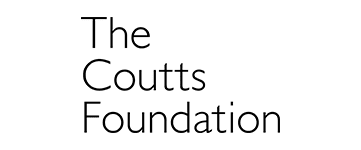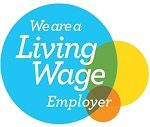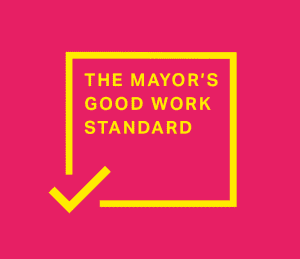Filling the growing access to justice gap
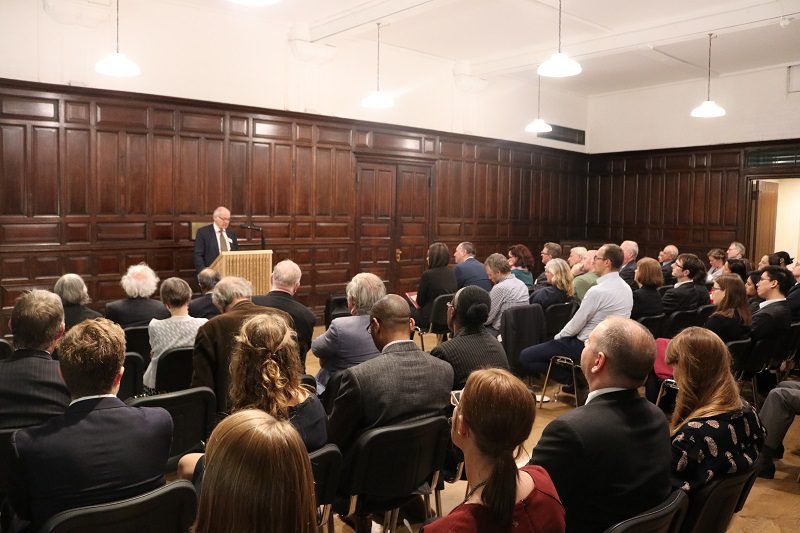
A speech made at the Toynbee Hall Free Legal Advice Centre’s 120th Anniversary event by Lord Neuberger, the former President of the Supreme Court of the United Kingdom.
The two fundamental pillars on which any modern civilised society rests are democracy and the rule of law. Democracy requires that the country’s lawmakers can be removed through the means of reasonably frequent and wholly fair elections, which should ensure government which is both accountable to, and legitimised by, the people. The rule of law, involves properly enacted laws which are just, clear and accessible, and a competent, impartial and effective courts system to which access is available to anybody. Between them, democratic government and the rule of law should enable people to enjoy their private lives and to pursue their commercial interests.
And, both as a matter of principle and historically, ensuring the rule of law together with defence of the realm has been the primary function of government. It is all too easy to overlook this or take it for granted, in the light of this country’s almost uniquely long period of 330 years of peace at home, no invasion from abroad and no tyranny. And, quite apart from this, the more modern and more discussed functions of government – health, welfare, education – fall away or become of negligible value if there is no rule of law or freedom from invasion.
As I have mentioned, the rule of law fundamentally requires just laws, which are accessible and understandable. These days our laws give people many more rights than they had in the past – rights to welfare, housing, education, health, employment, and rights relating to family and children issues (all largely first introduced within past 150 years), and more recently, since 2000, fundamental, or human, rights.
And quite right too. Of course, anyone will disagree with some of the rights granted – some people thinking they do not go far enough and other people thinking they go too far. But very few people quarrel with the general thrust of the legislation on these issues, and very few people would disagree with the great majority of court decisions on these issues – whether UK courts or the European Court of Human Rights in Strasbourg.
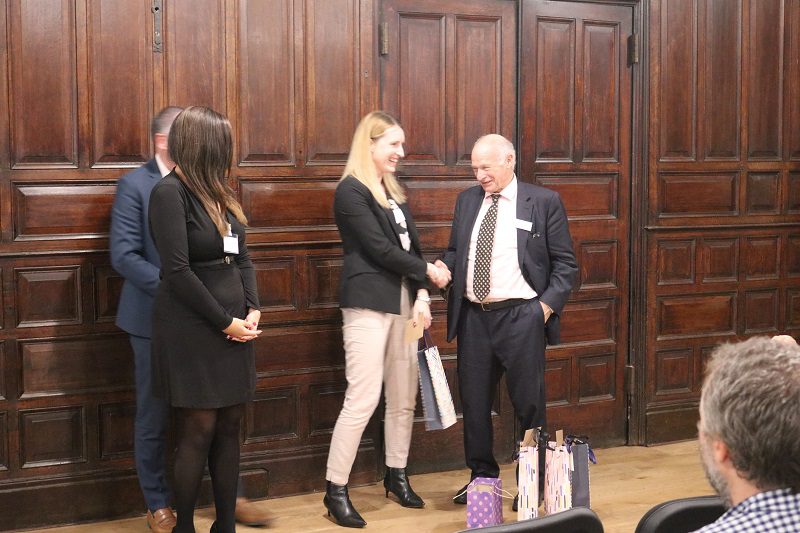
It is Parliament which largely decides that people should have these rights and then gives them these rights by legislation (eg the HRA). It is lawyers who can analyse and advise people on the nature and extent of these rights. And it is the judges in courts and tribunals who actually decide on the nature and extent of those rights, whether they have been infringed and what compensation or other relief should be accorded to people whose rights have been infringed.
It is important to emphasise the role of lawyers. Non-lawyers need expert legal advice when they think that their rights may have been infringed – or indeed when they are accused of infringing other peoples’ rights. Although laws should be accessible and understandable, the regrettable truth is that, in an increasingly complex and diverse society, our laws are very detailed and are often amended: the legislation relating to social security and housing for example is very complex – far too complex for even the great majority of well-educated and intelligent non-lawyers. And, even when the legislation is pretty simple, like the HRA, the enormous number of UK court and ECtHR decisions means that there is a great deal of law encrusted onto the statutory provisions which makes it almost impossible for almost any non-lawyer to get to grips with the law and understand his or her rights.
And, even if they get good legal advice about their rights, people need to know how to set about enforcing those rights (or defending their position). That often only involves writing a letter or two – easy if you know who to write to and how to express yourself, but most people don’t. And sometimes a letter won’t do the trick: you need to go to a court or tribunal. Appearing on your own without a lawyer, particularly when the other side – the government, your employer, the local authority – has an expert advocate, is not only very intimidating and often very upsetting for any non-lawyer who would like his or her own advocate but cannot afford it. It is simply unfair.
Quite apart from this, there is a famous adage that a lawyer who acts for himself has a fool for a client. That is because even a lawyer lacks the objectivity which is required when his own interests are involved. If that is true of a lawyer, who will normally be experienced, often very experienced, in legal matters, how much more true is it of a non-lawyer?
It is very hard to overstate the importance of being able to get legal advice and legal representation in the complex legal 21st century world which we now inhabit. If people cannot get advice about their rights, if people cannot enforce those rights when they are infringed, something has gone seriously wrong. Totalitarian dictatorships are very good at having wonderfully liberal-sounding constitutions giving citizens all sorts of rights and then of course disregarding them entirely. To give people rights and then to deprive them of the ability to understand those rights or to enforce those rights is not much better. Access to justice is an absolutely fundamental aspect of the rule of law, which as I emphasised at the beginning is absolutely fundamental to a civilised society.
Yet leading people to think they are being granted rights, and then rendering them close to unenforceable in many cases is, I regret to say, the direction in which this country appears in many respects to be going. Legal aid for advice and representation on issues relating to civil and family law issues (ie any non-criminal matters) has been cut and cut over the past 20 years or so. Cut in relation to the types of case which are covered and cut in relation to the types of individual who qualify. In the Supreme Court while I was President we held, in 2016, that government ministers’ attempt to refuse legal aid to some people who had been in this country for less than 12 months was unlawful. We did not do so on the basis that it was unlawful as a matter of general principle (we left that point open). We decided the case on the basis that Parliament had not authorised ministers to take that course and express Parliamentary sanction was required for that course – a narrower, but equally constitutionally important, reason – and close to the reasoning in the Miller/ Article 50 case. Unfortunately, this was a rare example of a legal attack on the legal aid cuts succeeding.
And to add insult to injury, the Government has seen fit to increase the fees it charges to people to get access to the courts. Some people are, it is fair to say, exempt from being charged these fees, but many people who find the fees crippling are not exempt. In that connection, in 2013 the government made a Fees Order which increased very substantially the fee which an employee had to pay if he or she wished to bring a claim in the employment tribunal based on unfair dismissal, equal pay or discrimination to £1200 (and to £390 for very simple claims). The Fees Order also provided for full or partial remission of the fee if a claimant’s disposable capital, together with their partner’s, was below a specified amount (normally £3,000). A trades union, UNISON, brought proceedings for a determination by the courts that this was unlawful, essentially on the grounds that the level of prescribed fees interfered unjustifiably with the right of access to justice and, frustrated the operation of the legislation which granted employment rights, and because it discriminated unlawfully against women. As president of the Supreme Court at the time, I though that the case merited seven judges rather than the usual five.
We decided unanimously that UNISON was entirely right, and that the 2013 Fees Order should be quashed. It was true that the fee could be recovered if the claim succeeded but that was not enough to save it. The evidence showed that the effect of the Fees Order was “a dramatic and persistent fall in the number of claims brought in Employment Tribunals, with a greater fall in the number of lower value claims and claims in which a financial remedy was not sought. Fees were the most frequently cited reason for not submitting a claim. Worked examples of the impact of fees on hypothetical claimants indicated that in order to meet the fees they would have to restrict expenditure that was ordinary and reasonable for maintaining living standards”. In addition, we said that “[f]ees must be affordable not in a theoretical sense, but in the sense that they can reasonably be afforded. Where households on low to middle incomes can only afford fees by forgoing an acceptable standard of living, the fees cannot be regarded as affordable. Even where fees are affordable, they prevent access to justice where they render it futile or irrational to bring a claim, for example where in claims for modest or no financial awards no sensible claimant will bring a claim unless he can be virtually certain he will succeed, that the award will include recovery of fees, and that the award will be satisfied in full”.
These two cases were examples of the judges doing their duty and ensuring that the Government observed the rule of law. And, to give the Government due credit, although they obviously did not welcome either decision, they accepted the decision as representing the law (just as they did in relation to our decision in the Miller, Article 50, case)
And, given that I have been criticising the Government for squeezing access to justice, let me say that it is not just the government who should be doing more to ensure that people have access to justice, it is also the legal profession and judges. We should be doing our best to ensure that legal advice and hearings in court and tribunals are as easily and cheaply available as possible and are as simple, and as user-friendly as possible.
Paradoxically, the very excellence of the ability and reputation of our lawyers and our courts across the world increases the cost of access to justice in this country. To attract the best people into being lawyers involves paying them well, and the high reputation of our lawyers means that domestic companies and rich people and foreign companies and rich people are prepared to pay then well. This trickles down to ordinary lawyers, who anyway have high overheads to meet. Steps have been taken and are being taken to try and cut costs to the public in ordinary cases, but not all of them have worked and some of them, including modernising and rationalising the courts physically and in terms of IT are proceeding at a somewhat glacier-like pace.
All this means that there is a highly regrettable gap or deficit, some might say a very large gap or deficit, in the provision of access to justice in this country, and it is a gap which, even more regrettably, has expanded over the past 25 years. This gap has been and is being filled, albeit, alas, not completely, but very significantly, by the people and organisations whom I regard as the heroes and heroines of this sorry story, namely the legal advice centres, the law centres, the citizens’ advice bureaus, the Personal Support Unit, and the highly dedicated, impressive and not-well paid permanent staff, and the highly dedicated, impressive volunteers who work for these entities. In so far as it is there to carry out its fundamental rule of law function, the provision of legal advice and representation to ordinary individuals, our legal system is in danger of falling over, or to pursue my metaphor, falling into the gap, and, were it not for the heroes and heroines I have just mentioned, it may very well already done so.

120 years old this year, Toynbee Hall can proudly claim to be the oldest surviving legal advice centre in the country. I have had the honour of seeing the legal advice centre here in action, I have talked to the people who run it, and I have watched advice being given sympathetically, patiently and clearly by expert lawyers and others, many of whom have had busy working days, to people, many of whom are confused, lost or angry, and some who are more relaxed but nonetheless badly in need of help an guidance. It was both a humbling and an uplifting experience.
Let me encourage everyone who can do so to support, or of you are already public-spirited enough to do so already to continue to support Toynbee Hall’s FLAC, Free Legal Advice Centre. This 120th anniversary is a fitting occasion not only to celebrate in words, but also to acknowledge with actions, the enormous contribution Toynbee Hall makes to access to justice for the benefit of so many members of the community who have nobody else to turn to when it comes to needing legal advice. Toynbee Hall’s website states that FLAC provides “[f]ree, confidential and high quality legal advice … for people across London”, and that “[t]hrough supporting [FLAC’s] legal advice work you will enable access to justice for families and individuals”. Unlike the great majority of such statements on websites, these two statements are completely accurate.
Let me end by saying a profoundly heartfelt thank you to all the past and present staff of Toynbee Hall and to all the past and present volunteers at Toynbee Hall, on behalf of the legal system, the rule of law, and the country as a whole, as well as the countless people you have helped over the years, for the remarkable, demanding and important work which you have done, which you are doing, and which I profoundly hope, you will continue to do.
Read more about our event to celebrate 120 years of the Free Legal Advice Service.











